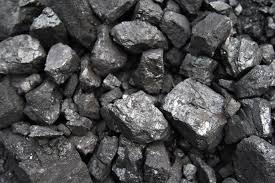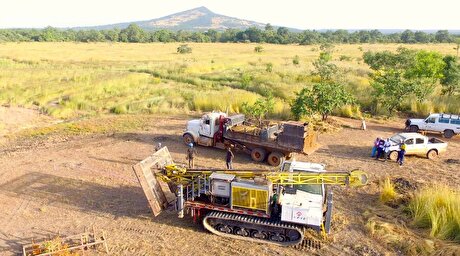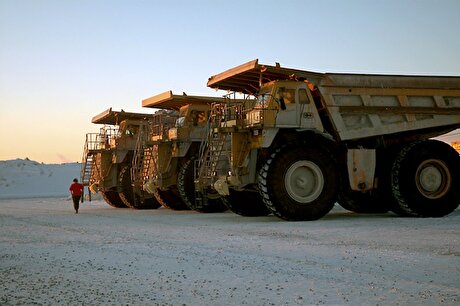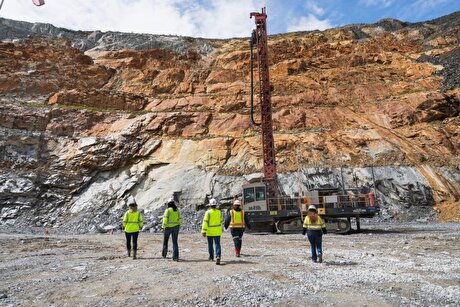
Chinese iron ore off 10-mth low on March output data

The world's biggest steel maker last month churned out a total of 73.98 million tonnes of steel, up 4.5 percent from a year ago, data from the National Bureau of Statistics showed on Tuesday.
Average daily steel output in March reached 2.39 million tonnes, the highest level since September and up 2.8 percent from combined January-February data and also year-on-year, according to Reuters records.
The most-traded iron ore futures on the Dalian Commodity Exchange were down 0.6 percent at 443.5 yuan ($70.60) a tonne as of GMT 0325, bouncing back after dipping to their weakest level since June 27 at 434 yuan a tonne in early morning.
Despite concerns of a glut, construction steel rebar contracts for October delivery on the Shanghai Futures Exchange rose 0.6 percent to 3,423 yuan.
"Increase of steel output indicates production restrictions may be weaker than expected," said Richard Lu, analyst at CRU consultancy in Beijing.
Tangshan has ordered steel mills to cut 50 percent of sintering capacity over and above the existing output restrictions in place until November as a bout of foul air was expected to blanket the country's top steelmaking city and the surrounding Beijing-Tianjin-Hebei region from Monday.
Emergency measures in Tangshan are effective from April 15. It has not set a date for the measures to be lifted.
Other steel raw materials also rose after the release of official output data. The most-active coking coal futures recovered for the first time after a four-day loss, up 1.1 percent to 1,134 yuan a tonne, while coke contracts for September delivery gained 1.3 percent to 1,787 yuan a tonne.


SAIL Bhilai Steel relies on Danieli proprietary technology to expand plate mill portfolio to higher steel grades

Alba Discloses its Financial Results for the Second Quarter and H1 of 2025

Fortuna rises on improved resource estimate for Senegal gold project

Copper price slips as unwinding of tariff trade boosts LME stockpiles

US slaps tariffs on 1-kg, 100-oz gold bars: Financial Times

Fresnillo lifts gold forecast on strong first-half surge

Why did copper escape US tariffs when aluminum did not?

Codelco seeks restart at Chilean copper mine after collapse

NextSource soars on Mitsubishi Chemical offtake deal

Hudbay snags $600M investment for Arizona copper project

Discovery Silver hits new high on first quarterly results as producer

Trump says gold imports won’t be tariffed in reprieve for market

AI data centers to worsen copper shortage – BNEF

Uzbek gold miner said to eye $20 billion value in dual listing

Peabody–Anglo $3.8B coal deal on the brink after mine fire

De Beers strikes first kimberlite field in 30 years

Minera Alamos buys Equinox’s Nevada assets for $115M

OceanaGold hits new high on strong Q2 results

What’s next for the USGS critical mineral list

Hudbay snags $600M investment for Arizona copper project

Discovery Silver hits new high on first quarterly results as producer

Trump says gold imports won’t be tariffed in reprieve for market

AI data centers to worsen copper shortage – BNEF

Peabody–Anglo $3.8B coal deal on the brink after mine fire

De Beers strikes first kimberlite field in 30 years

Minera Alamos buys Equinox’s Nevada assets for $115M

OceanaGold hits new high on strong Q2 results

South Africa looks to join international diamond marketing push














